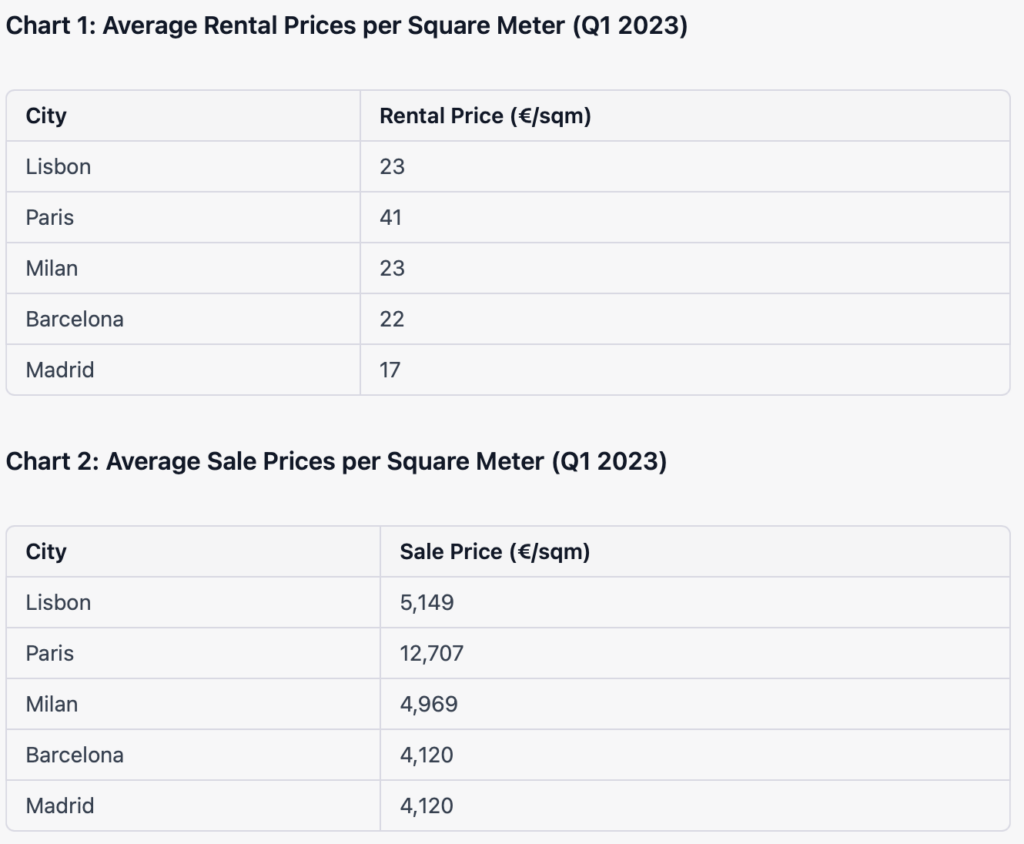The Lisbon City Council made some decisions about housing. Here’s what happened:
- On March 29, the Lisbon City Council approved a motion from the PCP (a political party) about housing.
- The motion is about ensuring people have a place to live and stopping unfair housing practices.
- The motion will be sent to the appropriate government leaders in Portugal.
The right to housing in Lisbon takes center stage
Here are some key points from the motion:
Stop Rent Increases:
- The motion wants to stop rents from going up.
- This includes new rental contracts.
- The motion also intends to protect renters from being evicted too easily
More Public Housing:
- The motion wants the government to provide more public housing.
- This can be done by using public properties and other places for housing.
- The motion also mentions using money from the Recovery and Resilience Plan (PRR) to help with this.
Other Approved Ideas:
- Fix up public properties to use for housing.
- Help fix up empty private properties to use for housing.
- Use legal ways to take over, fix up, and rent out vacant private properties in areas with housing shortages.
- Spend money quickly to provide more places for students to live.
Right To Housing In Lisbon: Ideas that Were Rejected
One part of the motion was not approved. It was about helping families with housing loans and preventing evictions related to mortgages.
Rental Contracts Before 1990
The right to housing in Lisbon is a complex issue that affects tenants and landlords differently. On the one hand, some tenants benefit from rental contracts before 1990, which are protected under the old lease regime. These tenants pay extremely low rents, sometimes as little as 50 euros per month, making it challenging for landlords to maintain their properties and earn a reasonable income. On the other hand, some landlords have taken advantage of the housing market by significantly increasing rents—sometimes by two to three times the original amount—putting immense financial pressure on tenants.
To address these disparities, the More Housing program, approved by the Government in March 2023, includes measures to bring rental contracts before 1990 outside the current lease regime. As part of this change, landlords will receive compensation for not updating rents, which could include tax benefits, subsidies, or a defined maximum rent amount. The compensation regime is set to take effect in January 2024, with the final proposal expected to be presented by July 2023, following the completion of a study commissioned by the Government.
The study, conducted by PlanAPP and IHRU, aims to analyze old rental contracts and gather data on the number of contracts and the financial needs of affected families. The findings will help the Government determine the best approach to fairly compensate landlords while upholding tenants’ rights to affordable housing. Overall, these measures seek to create a more balanced and equitable rental market in Lisbon, where the rights and needs of tenants and landlords are considered.
Related Discussions At The Meeting
There was also some discussion about other housing issues:
- Some council members criticized the mayor, Carlos Moedas, for participating in a government housing program without consulting the city council.
- The PCP motion also wants the city council to take a position on the government’s More Housing program.
- There were questions about whether public funds are being used for real estate speculation and tourism.
- A proposal was made for a 30-year Ecologica program to rehabilitate Municipal Neighborhoods.
- The city council approved a vote for the International Day of Trans Visibility on March 31.
Overall, the Lisbon City Council made decisions to help people have better housing access and stop unfair housing practices.
How do you feel about the new measures? What do you think could have been done better?
As for me, I wish that landlords were not demanding an entire full year of rents from expats, immigrants (whatever people want to call us). It seems pretty predatory to me, but as long as the market is hot here (which I think is about to turn around with these measure and the changes to Alojamento Local). But I guess time will tell.
Housing Prices Comparison and the Right to Housing in Lisbon
Lisbon, the second most expensive city in southern Europe for housing, continues to face challenges in the housing market, as evidenced by a recent report by Casafari, a European real estate data platform. As a result, the right to housing in Lisbon has become an increasingly important issue as the city struggles with high housing costs and a limited supply of properties.
To clearly compare housing prices in Lisbon and other cities, we have created two charts that illustrate the average rental and sale prices in Lisbon, Paris, Milan, Barcelona, and Madrid.

These charts reveal that Lisbon’s average rental price per square meter is on par with Milan but higher than Barcelona and Madrid. Regarding the average sale price, Lisbon ranks second only to Paris, surpassing the other three cities.
The right to housing in Lisbon is being challenged by the growing gap between rental and sale prices and a reduced supply of properties. Between January and March, Lisbon experienced the most significant rental price increase (5.4%) compared to the last quarter of 2022 and an astonishing 40.2% growth compared to the previous year’s period.
Furthermore, the supply of houses for sale and rent has contracted in all five cities analyzed, with Lisbon experiencing a 47.2% drop in rental properties compared to 2022. This limited availability has contributed to the housing crisis in Portugal, emphasizing the need for practical solutions to ensure the right to housing in Lisbon.
The rising housing prices and diminishing supply in Lisbon highlight the urgency of addressing the right to housing in the city. Policymakers and stakeholders must work together to develop strategies that ensure affordable and accessible housing options for Lisbon’s residents without causing unrepairable harm to small hospitality entrepreneurs in the city.
FAQs
The main goal of the motion is to guarantee the right to housing in Lisbon and combat real estate speculation. This includes stopping rent increases, protecting tenants from evictions, and increasing the public supply of housing.
The motion aims to stop the increase in rents, including in new rental contracts, and rebalance the relationship between tenants and landlords. This includes reversing the facilitation of evictions created by the current legislative framework and limiting the possibility of eviction.
The motion calls for an increase in the public supply of housing by using public properties and other suitable locations for housing purposes. It also advocates for significant state funding and the full use of funds from the Recovery and Resilience Plan (PRR) to promote public housing.
The More Housing program, approved by the Government in March 2023, includes measures to bring rental contracts prior to 1990 outside the current lease regime. Landlords will receive compensation for not updating rents, which could come in the form of tax benefits, subsidies, or a defined maximum rent amount. The compensation regime is set to take effect in January 2024.
The Government commissioned a study from PlanAPP and IHRU to analyze old rental contracts prior to 1990 and gather data on the number of contracts and the financial needs of affected families. The findings from the study will help the Government determine the best approach to fairly compensate landlords while ensuring that tenants’ rights to affordable housing are upheld. The final proposal is expected to be presented by July 2023.

